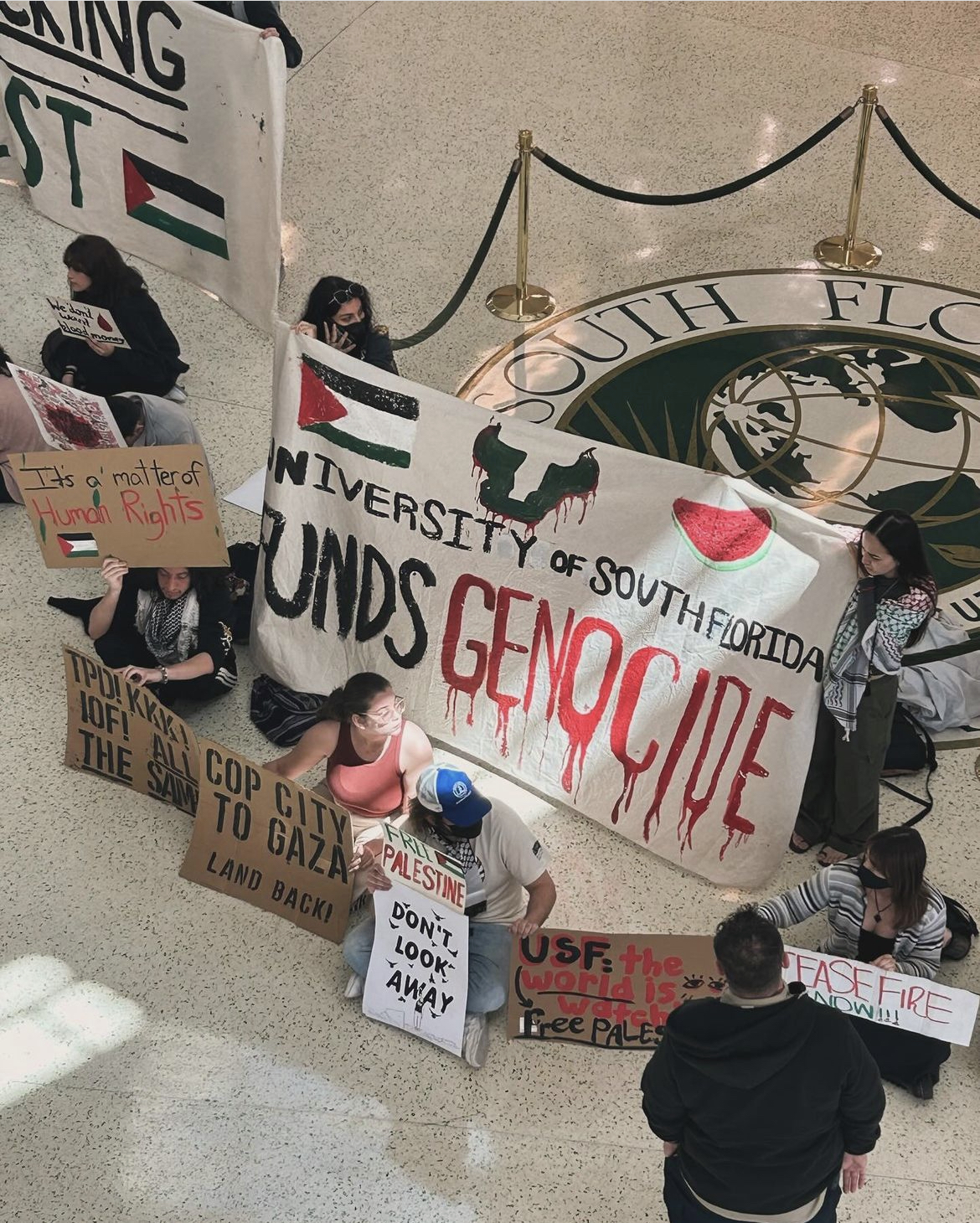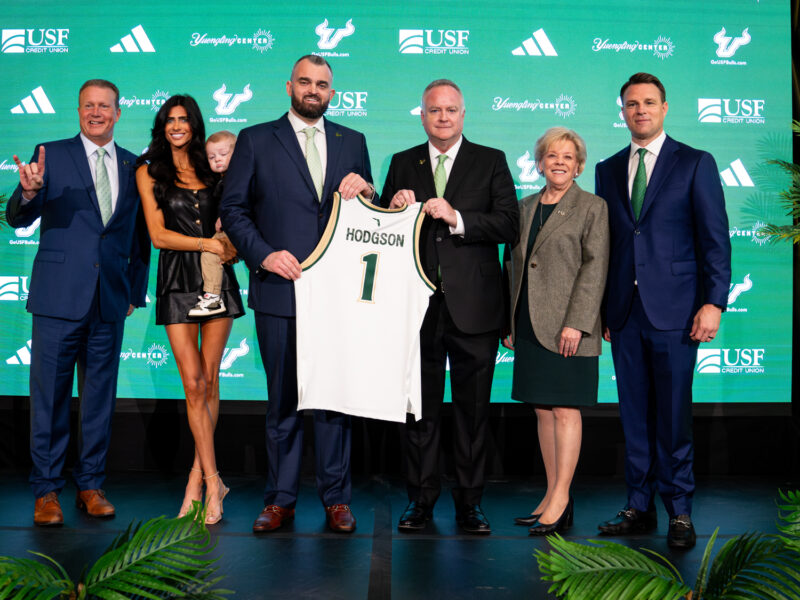Photo courtesy of @usfhungerstrike on Instagram
By Alisha Durosier
For a group of University of South Florida students, Mar. 18 marked the beginning of an escalated form of protest against the war in Gaza: A hunger strike.
Abstaining from all food and liquids, with the exception of water and electrolytes, 17 students are participating in the hunger strike in demand of USF’s divestment from companies that support Israel.
The group kicked off their strike by attending the Mar. 18 Board of Trustees (BOT) meeting. Before speaking before the BOT, they held a sit-in at Tampa’s Marshall Student Center and during the meeting they stood in the back of the room holding signs and banners that read “USF funds genocide” and “Hunger Strike for Palestine.”
“You assess that investment should remain apolitical and maybe I’d agree with you. I think that’s an excellent point. I’m sure that’s something a lot of the student body could agree with,” sophomore economics student Will Mleczko, who is participating in the hunger strike, said during the meeting. “But your starting point of investments are already political when you invest in a genocide.” Following their speeches to the BOT, the group of protestors were escorted out of the meeting holding their signs and chanting in unison “free, free palestine.”
The number of protesters dropped from 18 to 17 after a participant withdrew 30 hours into the strike due to medical reasons. The striker experienced an “inability to sleep, a drop in cognitive function and frequent vomiting,” according to the USF Hunger Strike Instagram.
“USF is complicit… USF has proven to us that there’s no way to make them listen to us unless we put our lives on the line, so that is what we will do,” the coalition said on an Instagram post.
The group provided a list of four demands and have committed to strike until they are met.
They ask that USF President Rhea Law calls for a ceasefire in Gaza, USF makes its investment portfolio from 2013-2023 public record, and by fall 2024 that a student oversight committee is established to review and provide input on USF’s future investments.
The last and most important demand is that USF divest from corporations Hewlett Packard (HP), Boeing, Lockheed Martin, Northrop Gruman and Caterpillar.
“We want USF to end its complicity. I’m not sure about the rest of the strikers, but I believe that if we got that fourth demand met, just the divestment, that’s enough,” junior philosophy student Alina Atiq, one of the participants, said.
The group narrowed it down to these five corporations for its supply of weapons, machinery and technology that Israel and its military uses.
“Finding a specific atrocity and these specific people, these specific names, faces stories that have been killed by weapons that my university is investing in really hurts,” Atiq said.
In 2014, USF Students for Justice in Palestine (SJP) collected 10,000 signatures urging USF to divest in similar corporations that USF SJP said were complicit in Israeli occupation and for transparency regarding USF’s investments. USF did not follow through.
Originally USF Students for Socialism (SFS) called for the strike, but following a meeting with the Associate Dean of Students, Winston G. Jones, SFS received a cease and desist letter ordering that any advertisement of the strike must be removed off of social media.
“Winston called for a meeting with us. He had [a] health advisor and they were talking about the health risks of a hunger strike,” Atiq said.“We basically told them that if they were truly concerned for us, they would concede to our demands right away so that we didn’t have to go on a hunger strike at all. And then two days after we received the cease and desist.”
The letter stated that the call for the strike violated two code of conduct regulations: “Prompting, facilitating, or encouraging of others to violate standards of behavior,” and engaging in “conduct non-compliant with University policies, guidelines, or directives related to the health and safety of the University community.”
The strike is now unaffiliated with any student organization and was relaunched under a new Instagram page called USF Hunger Strike.
More recently, USF administration attempted to contact the strikers’ parents.
“We never said, ‘tell us if you want to join our hunger strike’ or ‘become a striker,’ we would never do that…Everybody volunteered. Everybody that is a striker currently volunteered and said ‘I want to join this, I want to do it,’” Atiq said.
The strike was inspired by Brown University’s Divest Coalition, who in early February held a hunger strike.
As the group continued to organize sit-ins and protests, Atiq said that not only were the demonstrations being suppressed but they were also stagnating.
“Time is very precious right now because people are being murdered as we speak,” Atiq said.
During strike many students will continue to attend classes and work.
“Throughout the entirety of the hunger strike, the people of Gaza will be on my mind,” Atiq said.



